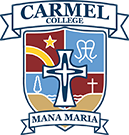Today I want to start with a huge thank you to Mrs Linda Singleton – our Year 12 Camp organiser. Although there is a team of other staff working with her to make the Year 12 Camp such an amazing experience, Linda pulls all the threads together. This job was even more challenging this year due to Auckland’s change to Alert Level 3 and the delay in departure. This meant that Linda had to abandon her carefully made plans for 6 days of activities and hastily reorganise people and buses to fit activities into just 5 days. I am sure the students will have said “thank you” to Linda but I wanted to reiterate that thanks in this forum.
The Year 12 Camp is one of many of what the MOE calls Education Outside the Classroom (EOTC) and it recognises that learning can take place everywhere. An EOTC experience can be ten minutes in the school grounds, a half day visit to the bush, river or local museum. It can be a camping experience, being involved in a hands-on project in the school’s grounds or a local reserve, playing sport, performing at a local Kapa Haka competition or dancing in an arts festival. It can be the school production, a week-long camp at Tongariro National Park, a Year 10 camp at Waiheke, the French trip to Noumea, a day trip to Mangere Mountain and activities like Waterwise.
According to MOE these out of the classroom learning experiences provide students with a range of contexts to; develop the key competencies, explore their values and the values of others and apply learning across the curriculum. The key competencies as identified in the NZCurriculum, are capabilities people have and need to develop, to live and learn today and in the future. The NZCurriculum identifies 5 key competencies; thinking, relating to others, using language, symbols, and texts, managing self and participating and contributing. The Education Review Office (ERO) suggests that the Key Competencies are increasingly recognised for their importance in equipping students with what they will need to survive and thrive in an ever-changing world. It is no longer enough for students to acquire knowledge and master skills. Students need opportunities to develop their capabilities as users of knowledge and skills in diverse contexts. This requires attention not only to their recall of knowledge or ability to perform tasks, but to supporting them to be capable and creative critical thinkers and communicators. They need to be able to manage ambiguity and uncertainty, participate and relate well to others and contribute as local and global citizens. Further details see here.
At Carmel we try to include EOTC at all levels of the school as we consider it to be an integral part of learning. This takes a massive commitment by dedicated staff as they need to work out the cost, learning activities, travel arrangements, food and accommodation, adult: student ratios and a huge raft of safety considerations. Despite that we always have staff and parents and even past students keen to make these events happen. Why? Well I asked some Carmel students to tell me about what they had learned from camp – these are just a few of the responses I received;
“At Year 10 camp I was put in a group with people I hardly knew. I was very shy but we were encouraged to work together due to the activities we were doing. This enabled me to get closer to new people which I would not have usually done. This not only taught me about what I was capable of but also showed others what I was capable of, my talents and the real me.”
“We worked in teams of 4-5 to conduct surveys, collect data and analyse the level of sustainability in the Tongariro region. From this experience, I was able to develop valuable skills such as time management, making decisions with others and splitting the load evenly. Personally, I found out that I really enjoy teamwork, as prior to this, I thought I worked more efficiently as an individual. I had always known the saying, ‘many hands make light work’, and experiencing this in a highly practical situation again reinforced this message to me. “
“When it was finally time to return home, we all left with new friends, memories and experiences that will be treasured for years to come.”
I can attest to the last comment – I went on a school trip when I was in Form 1 (Year 7) at a primary school not far from Carmel College. The trip was to Putaruru. It does not seem particularly glamorous now, but for city children, most of whom didn’t travel much beyond the beach, it was quite a culture shock. We milked cows, visited the ‘new’ hydroelectric dams on the Waikato, an operational timber mill and a dairy factory. I can still remember the family I was billeted with, the farm I stayed on and the teacher who organised the trip and that is without the benefit of Facebook memories. I won’t say how many years ago that was but my point is, I can remember those things and the people that I was with but I certainly do not remember what Maths we did, what books we read in English or much else from that year. Shared experiences, shared memories and personal challenges are the stuff of sisterhood that help us to build relationships, foster self esteem and happiness. And, in the words of Albert Schweitzer, “Happiness is the only thing that multiplies when you share it.”

